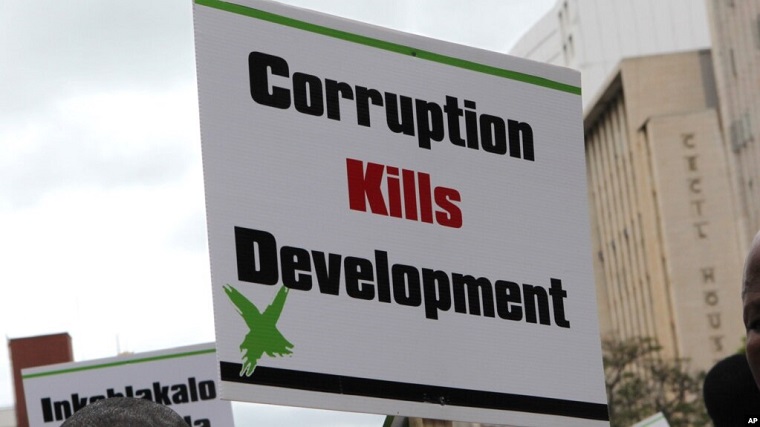 Zimbabwe authorities must prove to the nation that agencies that were set up to fight corruption have not been captured by cartels that they seek to root out, a Parliamentary portfolio committee says.
Zimbabwe authorities must prove to the nation that agencies that were set up to fight corruption have not been captured by cartels that they seek to root out, a Parliamentary portfolio committee says.
The Parliamentary Committee of Lands, Agriculture, Water, Fisheries and Rural Development said this was necessary in order to restore confidence of the nation that the fight against corruption was real and not just a game of catch-and-release.
It said investigations and prosecutions must result in clear penalties that indicate that crime at the expense of the people is not simply tolerated.
The committee said this in its report on the US$28.2 million that was given to the Grain Millers Association of Zimbabwe to import wheat between 2017 and 2019.
Evidence that the committee received showed that GMAZ had not imported any wheat. Wheat valued at US$24.2 million was, instead, imported by a company called Drotsky, which was owned by GMAZ chairman Tafadzwa Musarara.
“This inquiry brought to light damning evidence of misrepresentation, manipulation, externalization, forgery, perjury, theft, contempt of Parliament, dishonesty among other serious crimes committed by Mr Tafadzwa Musarara, the executives of the Grain Millers Association of Zimbabwe, Drotsky and their attorneys, Rubaya and Chatambudza against the people of Zimbabwe,” the report says.
“The institutions created to fight corruption must be seen to be transparent, honest and just but are themselves not doing nearly enough to protect the interests of the citizens and the nation.
“Furthermore it is these very institutions that are accused by citizens of shielding suspected perpetrators of corruption by demanding an unreasonable threshold of proof from whistleblowers while failing to perform their role as investigators, and while it is a well-known fact that corruption is often a web of complexities and opaque machinations.”
The committee recommended that:
- The Zimbabwe Republic Police and the Zimbabwe Anti-Corruption Commission must investigate the GMAZ transaction and ascertain the whereabouts of the US$28.2 million which was not accounted for by Mr Tafadzwa Musarara and GMAZ.
- ZACC must investigate circumstances that led to Drotsky being the vehicle used to import wheat on behalf of wheat millers and additionally when GMAZ processed telegraphic transfers to Holbud from its own accounts with invoices from Holbud clearly indicating GMAZ as the customer and not Drotsky.
- ZIMRA must investigate the tax affairs of Drotsky and GMAZ including instituting a lifestyle audit on Mr Tafadzwa Musarara for a period between January 2018 and March 2020 zeroing on the US$28.2 million availed by RBZ. ZIMRA must report to the committee within 60 days of tabling this report.
- The ZRP must investigate, take appropriate action where there are anomalies and issue a statement within 30 days of this directive on progress regarding the externalization of funds meant for wheat purchases by GMAZ.
- The Law Society of Zimbabwe must investigate Rubaya and Chatambudza Legal Practitioners for unethical conduct in trying to deceive the High Court of Zimbabwe by purportedly withdrawing a matter (HC2407/20) that had already been dismissed by a High Court judge, and
- Parliament must charge the GMAZ chairperson for contempt in that he deliberately lied under oath to defeat the objective of the committee’s inquiry. This is to ensure that the sacrosanct oversight role of Parliament is respected.
The report was presented to Parliament on 4 November 2021.
Below is the full report:
Continued next page
(136 VIEWS)






0 Comments